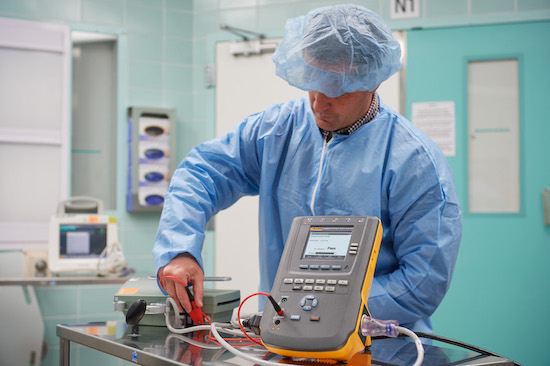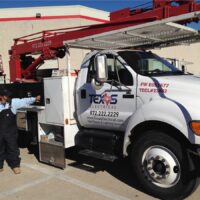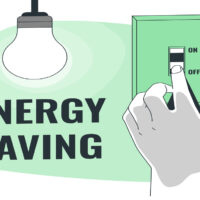Electrical safety tests ensure that electrical devices operate safely and do not pose a risk of electric shock. These tests are crucial for compliance with safety standards and regulations.
Electrical safety is paramount in preventing hazards like electric shocks and fires. Electrical safety tests check the insulation, grounding, and overall integrity of electrical devices. These tests include insulation resistance, earth continuity, and leakage current tests. Regular testing ensures equipment meets safety standards and functions correctly.
Both manufacturers and users benefit from these tests as they help maintain safety and reliability. Understanding and implementing electrical safety tests can save lives and protect property. Prioritizing electrical safety is essential for any environment, whether industrial, commercial, or residential.
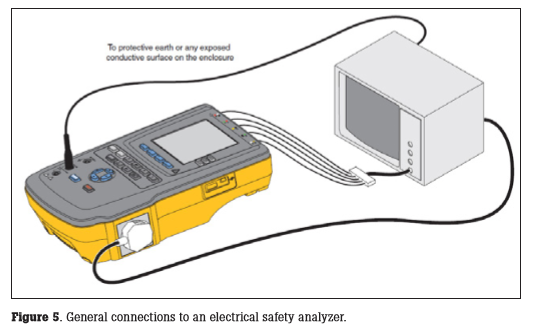
Credit: www.flukebiomedical.com
The Importance Of Electrical Safety At Home
Electrical safety at home is crucial. It keeps your family safe. Many homes have outdated wiring and appliances. These can pose serious risks. Understanding the basics of electrical safety can prevent accidents.
Common Electrical Hazards
Many homes face common electrical hazards. These include:
- Overloaded circuits: Too many devices on one circuit can cause overheating.
- Frayed wires: Damaged wires can cause short circuits and fires.
- Water near electricity: Water conducts electricity and can cause shocks.
- Old appliances: Outdated devices may not meet current safety standards.
Consequences Of Neglecting Electrical Safety
Ignoring electrical safety can lead to severe outcomes. Here are some potential consequences:
| Hazard | Consequence |
|---|---|
| Overloaded circuits | Electrical fires |
| Frayed wires | Short circuits |
| Water near electricity | Electric shocks |
| Old appliances | Electrical malfunctions |
Neglecting electrical safety can cause injuries and property damage. Always ensure your home is electrically safe.
Recognizing Potential Electrical Dangers
Electrical dangers can cause severe harm. Recognizing these dangers is vital. This section will guide you on how to spot these risks.
Identifying Faulty Wiring
Faulty wiring is a common electrical danger. Look for these signs:
- Flickering lights: This can indicate loose wiring.
- Burning smell: This might mean overheated wires.
- Frayed cords: This is a sign of wear and tear.
Signs Of Overloaded Circuits
Overloaded circuits are another common danger. Watch for these signs:
- Frequent tripping of circuit breakers: This shows overload.
- Warm or discolored outlets: This indicates excessive use.
- Buzzing noises from outlets: This suggests a serious issue.
| Signs | Potential Dangers |
|---|---|
| Flickering lights | Loose wiring |
| Burning smell | Overheated wires |
| Frayed cords | Wear and tear |
| Frequent tripping of circuit breakers | Overload |
| Warm or discolored outlets | Excessive use |
| Buzzing noises from outlets | Serious issue |
Safe Installation Practices
Safe installation practices are vital for electrical safety. Proper handling of electrical outlets and grounding can prevent accidents. These practices ensure your home or workplace remains safe.
Proper Handling Of Electrical Outlets
Proper handling of electrical outlets is crucial. Always use outlets that meet safety standards. Avoid overloading outlets with too many devices.
Follow these tips for safe outlet use:
- Use outlet covers to protect children.
- Inspect outlets for damage regularly.
- Do not force plugs into outlets.
Ensure outlets are installed by a qualified electrician. This guarantees that they are correctly wired.
The Role Of Grounding
Grounding plays a crucial role in electrical safety. It provides a path for excess electricity. This prevents shocks and fires.
Here are the key benefits of grounding:
- Reduces the risk of electric shocks.
- Protects appliances from damage.
- Ensures the electrical system is safe.
Always ensure your electrical system is properly grounded. Have it checked by a professional.
Regular Maintenance And Inspection Routines
Ensuring the safety of your home’s electrical system is vital. Regular maintenance and inspection routines help prevent accidents. They also keep your appliances running efficiently. Follow these routines to maintain a safe environment.
Scheduling Professional Check-ups
Professional electricians can spot problems that you might miss. Schedule an expert visit at least once a year. They will check your entire electrical system.
- Inspect wiring and outlets
- Examine circuit breakers
- Test smoke and carbon monoxide detectors
Professional check-ups help identify hidden issues. They ensure that your home complies with safety standards.
Diy Electrical Safety Checks
You can also perform some safety checks yourself. Simple tasks can help maintain your electrical system.
- Look for frayed wires
- Ensure outlets are not overloaded
- Check for scorch marks on outlets
- Test all switches and outlets
Regular DIY checks can prevent minor issues from becoming major problems. Always handle electrical tasks with caution.
Here is a basic checklist for your DIY inspections:
| Task | Frequency |
|---|---|
| Inspect extension cords | Monthly |
| Test GFCI outlets | Quarterly |
| Check circuit breakers | Annually |
Following these routines can ensure your electrical system stays safe. Regular maintenance and inspections are key to preventing accidents.
Essential Electrical Safety Devices For Homes
Electrical safety is crucial for every home. Using the right devices helps protect your family. Here are some essential electrical safety devices for your home.
Circuit Breakers And Fuses
Circuit breakers and fuses are vital for home safety. They stop the flow of electricity when there is a fault. This prevents fires and damage to your appliances. Fuses are older but still effective. Circuit breakers can be reset easily after they trip.
| Device | Function |
|---|---|
| Fuse | Stops electricity by melting wire |
| Circuit Breaker | Stops electricity with a switch |
Ground Fault Circuit Interrupters (gfcis)
GFCIs are essential for preventing electric shocks. They are used in wet areas like kitchens and bathrooms. GFCIs cut off the power if there is a ground fault. This protects you from electric shock.
- Install GFCIs in kitchens
- Use GFCIs in bathrooms
- Check GFCIs monthly
Arc Fault Circuit Interrupters (afcis)
AFCIs protect your home from electrical fires. They detect dangerous arcs in wiring. AFCIs cut off power when they detect an arc. This helps prevent fires caused by faulty wiring.
- Install AFCIs in bedrooms
- Use AFCIs in living rooms
- Test AFCIs yearly
Safe Use Of Electrical Appliances
Ensuring the safe use of electrical appliances is crucial for every home. Proper safety measures prevent accidents and extend appliance life. Let’s explore some essential tips for safe usage.
Understanding Appliance Ratings
Each electrical appliance has a rating label. This label shows the voltage and power requirements. It’s important to check these ratings before use. Here’s what you need to know:
- Voltage: Ensure the appliance matches your home’s voltage.
- Power: Check the wattage to avoid overloading circuits.
Maintenance Tips For Electrical Appliances
Regular maintenance keeps appliances working safely and efficiently. Follow these tips:
- Unplug before cleaning: Always unplug appliances before cleaning them.
- Check cords: Inspect power cords for damage regularly.
- Keep dry: Ensure appliances are dry to prevent short circuits.
- Proper storage: Store appliances in a dry, cool place.
By understanding ratings and maintaining appliances, you ensure their safe use.
Emergency Response To Electrical Accidents
Electrical accidents can happen suddenly and without warning. Knowing how to respond quickly can save lives. This section covers essential steps to handle electrical emergencies effectively.
First Aid For Electrical Burns
Electrical burns are serious injuries that need immediate attention. Here’s how to handle them:
- Turn off the power source: Ensure the victim is no longer in contact with electricity.
- Call emergency services: Dial your local emergency number for immediate help.
- Check for breathing: Start CPR if the victim is not breathing.
- Cool the burn: Use cool, running water for at least 10 minutes.
- Cover the burn: Use a clean, non-stick bandage or cloth.
- Avoid creams or ointments: Do not apply any substances to the burn.
What To Do In Case Of An Electrical Fire
Electrical fires require specific handling to ensure safety. Follow these steps:
- Cut off the power: Turn off the main power switch if safe.
- Use a fire extinguisher: Only use a Class C fire extinguisher on electrical fires.
- Evacuate immediately: If the fire spreads, leave the area and call the fire department.
- Do not use water: Water conducts electricity and can worsen the situation.
Understanding first aid for electrical burns and knowing what to do in case of an electrical fire can make a difference. Stay prepared and keep these tips in mind to ensure safety.
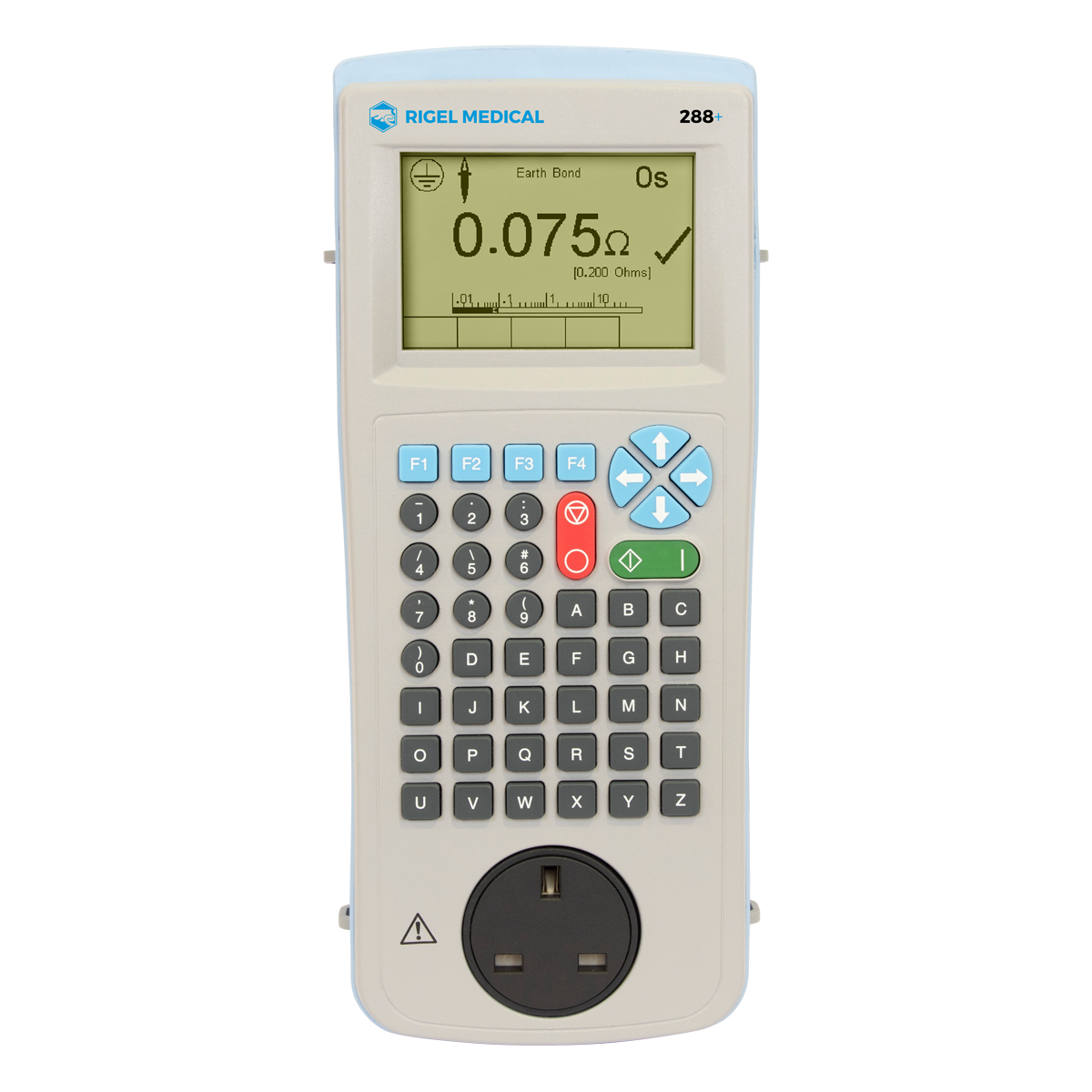
Credit: www.rigelmedical.com
Educating Household Members On Electrical Safety
Electrical safety is crucial for every home. Everyone must understand the basics. Knowing how to handle electrical devices can prevent accidents. This guide will help you educate your household. Follow these steps to ensure everyone stays safe.
Creating Safety Guidelines
Start by creating clear safety guidelines. Write down simple rules for everyone to follow. Use easy-to-understand language. Here are some suggestions:
- Do not touch electrical appliances with wet hands.
- Keep liquids away from electrical devices.
- Unplug devices when not in use.
- Do not overload power sockets.
- Use surge protectors to protect devices.
Post these guidelines in common areas. Make sure everyone in the house reads them. Regularly review and update the rules as needed.
Engaging Children In Learning About Electrical Safety
Children should also learn about electrical safety. Use fun and interactive methods to teach them. Here are some ideas:
- Storytelling: Create stories with characters that promote safety.
- Games: Use games to make learning fun. For example, create a matching game with safety rules.
- Role-playing: Act out scenarios where children learn what to do and what not to do.
- Visual Aids: Use pictures and videos that show safe practices.
Encourage questions and discussions. Make sure children feel comfortable asking for help. Always supervise them when they use electrical devices.

Credit: www.youtube.com
Frequently Asked Questions
What Is The Electrical Safety Test?
An electrical safety test checks electrical equipment for safe operation. It ensures compliance with safety standards. The test includes insulation resistance, earth continuity, and leakage current checks. Proper testing prevents electrical hazards and ensures user safety.
What Is The Electrical Safe Test?
An electrical safe test checks for proper functioning and safety of electrical systems and devices. It prevents electrical hazards.
What Are The 7 Electrical Tests?
The 7 electrical tests are: 1. Insulation resistance test 2. Continuity test 3. Earth resistance test 4. Polarity test 5. RCD test 6. Loop impedance test 7. High voltage test
What Are The Three Types Of Electrical Tests?
The three types of electrical tests are continuity tests, insulation resistance tests, and high-potential (hipot) tests. These ensure electrical safety and proper functionality.
Conclusion
Prioritizing electrical safety tests can prevent accidents and ensure a secure environment. Regular checks help identify potential hazards early. Implementing these tests safeguards your home and workplace. Stay proactive and invest in electrical safety to protect lives and property. Safe practices today can prevent future mishaps.

